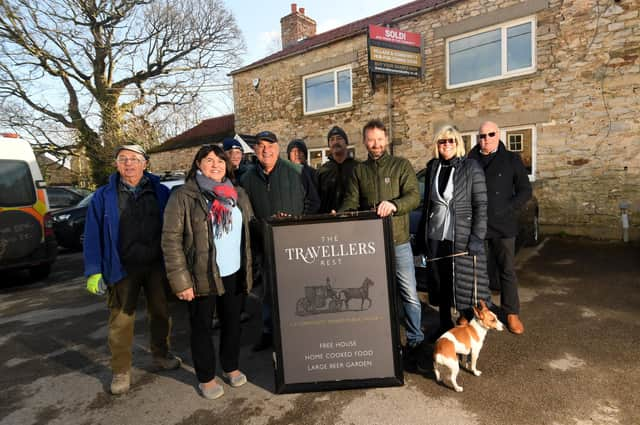The sad reality is pubs need people more than people need pubs - David Behrens


I can think of two places just like that, not far from where I live. But the oak doorways are locked and shuttered.
They are part of a disappearing way of English life; like donkey rides on the beach, banks on the high street and finger sandwiches for afternoon tea. We’d like them all to still be there but our lives have left them behind.
Advertisement
Hide AdAdvertisement
Hide AdIn a nation renowned for its insobriety, whose main export appears to be drunken holiday makers to the Spanish costas, the decline of the traditional pub is a surprising manifestation of 21st century modernity. But in the last three months alone, more than 150 have disappeared from the landscape, according to a survey this week. Since 2017 the figure is well over 2,000. Yet four in 10 of us drink more than 14 units of alcohol a week.
So it’s not drinking that’s in decline; it’s drinking socially.
The economics of running a traditional inn are stacked against the publican. Even big chains like Wetherspoon and Marston’s are putting their more marginal outposts on the market by the dozen. There isn’t the footfall to sustain them, they say.
But the pattern is irregular; there are towns and villages where people go out and others they come home to. My former stomping ground and my new one are at opposite ends of that spectrum.
Advertisement
Hide AdAdvertisement
Hide AdOtley used to have a higher proportion of pubs to people than anywhere else in England. It may still. Returning there the other Saturday, the crowds spilled into every one of them. There was scarcely an empty table at Wetherspoons and down the road, the Rose and Crown was almost as full. When Behrens junior worked there part time it was the sort of place where your feet stuck to the carpet and your elbows to the bar top. But a new licensee has reopened it and proved that even in the most competitive market an independent pub can succeed, so long as there is a pool of people within arm’s reach.
But that’s not the case everywhere. In the part of the East Riding I now call home, nearly every pub in a five-mile radius has closed its doors temporarily or permanently, or restricted its hours. The population was sparse in the first place and now it has got out of the habit of socialising as a community, except at jumble sales in village halls and coffee mornings at each other’s houses. For the few remaining publicans the biggest competitor is indifference.
There are exceptions and the village of Skeeby, in the North Riding, is one of them. The Travellers Rest used to serve 100 or more Sunday lunches every weekend and when it closed in 2008 the locals clung to the hope that one day it would do so again. Even when permission was granted to turn it into a house, they kept a light burning in the window.
Today, travellers can rest there once more. A monumental fund-raising effort has seen it taken into community ownership and refurbished in a style that elsewhere exists only in the memory.
Advertisement
Hide AdAdvertisement
Hide AdIt took 200 investors to put in nearly £300,000 to buy and renovate the place. Rishi Sunak, in whose constituency it is, was among them – and though he will continue to take his own Sunday lunch at Chequers he may think of his constituents enjoying theirs at their new local.
There are several such enterprises in other rural communities, supported by local investors, grants and charities. These new-age hubs are part pub, part village shop and sometimes part post office. They have a head start because their customers have a vested interest in making them succeed.
Each one is an inspiring achievement but not, sadly, a template for everywhere else. The Harrogate organisation Pub is The Hub, which offers advice on communal ownership, says that while many villages mull over the idea, few have the resources or enthusiasm to see it through.
My own village, I fear, is among them. Our sole pub, long closed, is on the market but the figures involved in buying and restoring it would be unworkable. If Wetherspoons can’t turn a profit, what hope for a bunch of amateurs like us?
Advertisement
Hide AdAdvertisement
Hide AdThe economic reality is that pubs need people more than people need pubs. It’s drinking, not pub-going, that is our national obsession, and if there’s no pub handy we can drink somewhere else.
As for the dream of retiring to a country pub, it died with those old donkey rides. Rural villages today are the last places you’ll find one.